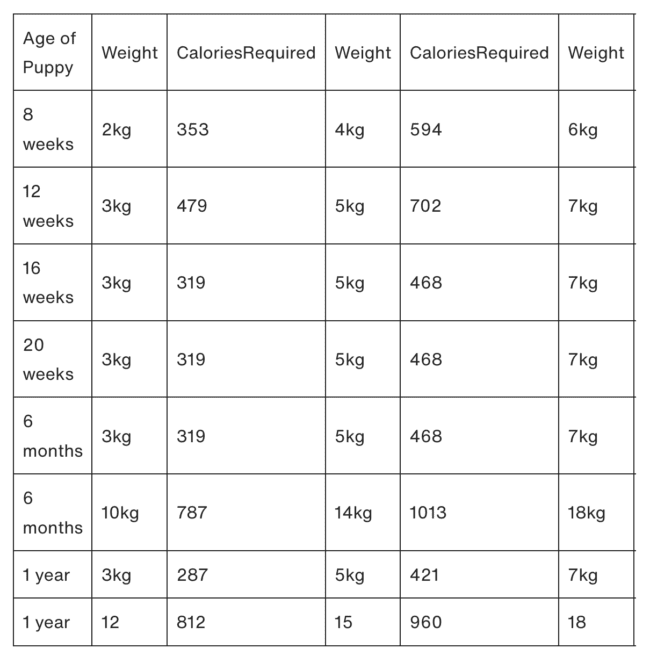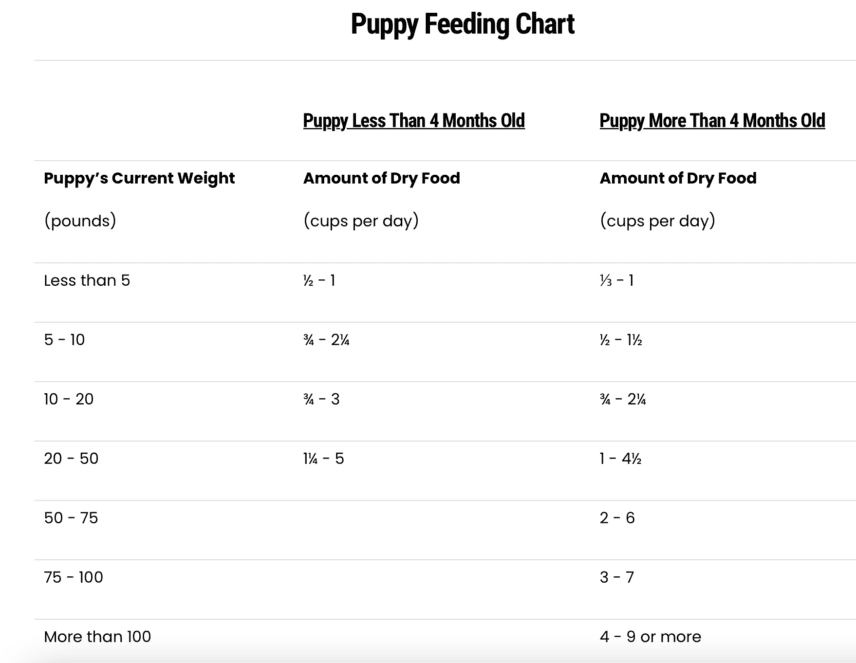Table of Contents
Last Updated on September 29 , 2023 by
How Much to Feed a Puppy by Weight (in Kilograms)
When it comes to your furry companion ’s health , providing the right nourishment is paramount .
A vulgar question among puppy owners is,“How much should I feed my puppy by weight in kilograms ? ”
In this comprehensive guide , we ’ll address this question and equip you with the noesis to secure your pup ’s healthy growth .

Understanding Your Puppy’s Needs
Before we turn over into specific alimentation guidelines , it ’s all important to pick out that puppy have unique dietetical requirements compared to grownup blackguard .
Their speedy maturation and development demand a well - poise diet to support their vigour levels , brawn growth , and overall health .
Feeding by Weight: A Tailored Approach
The ideal amount of food your puppy needs varies based on their exercising weight in kilograms . Here ’s a breakdown to assist you specify the appropriate feeding lot :
Puppies Under 5 kg
For little strain weighing less than 5 kg , it ’s advisable to start with 30 - 50 grams of high - quality puppy nutrient per kilogram of body exercising weight . Gradually correct as your puppy grows .
Puppies Between 5-10 kg
pup weighing between 5 to 10 kg may require 20 - 30 grams of food for thought per kilogram of body weight . supervise their growth and correct consequently .
Puppies Over 10 kg
Larger breeds over 10 kilo might need around 15 - 25 grams of solid food per kilogram of dead body weight . commemorate that individual puppy metabolism and activity levels can determine these number .
The Importance of Monitoring
While these guidelines provide a start point , it ’s crucial to tight remark your puppy ’s weight , push level , and overall health . Adjust their diet as needed to maintain a healthy weight .
How to Determine the Right Puppy Diet
Are you wondering about the best way to bung your beloved puppy ? Well , grab a loving cup of your favorite potable , sit back , and let ’s search the factors that determine how much to feed your puppy .
Feeding your furry friend is more than just providing nourishment ; it ’s about ensuring their growth , energy levels , and overall well - being .
Factors to Consider
Determining your puppy ’s ideal dieting need consider several fundamental factors :
1. Age
The geezerhood of your pup plays a crucial role in their dietary need . unseasoned puppy have different nutritional prerequisite compared to adult dog .
2. Breed
Different dog breed have alter metamorphosis rates and growth pattern , which bear upon their dietetical needs .
3. Weight
Your puppy ’s current and expected weight are important factors to study when design their dieting . It assure they receive the correct amount of small calorie for their sizing .
4. Activity Level
Is your puppy a zippy Cocker Spaniel or a mellow St. Bernard ? Their activity level touch on how many calories they require daily .
5. Type of Food
Consider whether you ’re feeding your puppy wet , ironic , or raw food , as each case has distinct nutritionary calibre .
By taking these factors into account , you could determine the correct calorie inhalation for your pup . to boot , you should assess the nutritional content of the food for thought you ’re currently providing .
Premium vs. Cheaper Dog Foods
Let ’s liken premium and cheaper dog-iron foods :
Premium Foods
Cheaper Foods
In summary , opting for premium andiron food offers better digestibleness , nutrient absorption , and small sportsmanlike - up tariff . It ’s a win - win for both you and your puppy .
Breed, Age, and Weight Considerations
Large vs. Small Breeds
Interestingly , larger breed ask fewer calories per kg of body weight equate to smaller breed . This means minor strain may require as much as twice as many kilogram calorie for their body free weight .
For case , Jack Russell Terriers , a small breed , have a loyal growth charge per unit and mature at around 12 calendar month . In contrast , large breeds like Great Danes grow more slow and do n’t make due date until around 2 years old .
Large Breed Puppy Food
big breed puppies want humble - nutritionist’s calorie denseness nutrient to promote gradual growth . They wo n’t reach their full grownup system of weights until around 2 year old .
Addressing Specific Breeds
Labrador Retriever
Labradors are infamous for their apparently unsatiable appetite . expectant breed puppy food with lower calorie density is recommend to encourage controlled growth .
Cocker Spaniel
Cocker Spaniels , being medium - sized dogs , can be fed even puppy food . They gain full grownup weightiness at around a class old .
Border Collie
Border Collies belong to the arcadian group and reach grownup weighting by 12 - 15 month . They maintain their playful puppy behavior for longsighted , so be aware of their vitality levels .
Chihuahua
Chihuahuas are petite dogs that give grownup weight by 10 - 12 month . Due to their size , be cautious not to overfeed them ; small , frequent meals may work best .
Beagle
beagle are intermediate - sized and can be fed regular puppy food . Be aware of their lean chassis , and align their dieting as needed .
Frequently Asked Questions
1. How does raw food work for puppies?
2. Wet vs. dry food – how much of each should I feed my puppy?
3. Can puppies eat the same food as adult dogs?
4. What should I feed my puppy in the first year?
5. How often should dogs eat?
6. How can I tell if I’ve overfed my puppy?
7. Should I be able to see or feel my puppy’s ribs?
In close , determining the right dieting for your pup involves thrifty thoughtfulness of their age , strain , exercising weight , and activity degree . By tailor their solid food to these ingredient , you ’ll see to it your furred friend develop up healthy and happy .
Sources : zigzag.dog
Fact Check
We strive to allow for the latest valuable information for pet lovers with truth and fairness . If you would wish to add to this post or advertise with us , do n’t hesitatereach us . If you see something that does n’t appear correct , contact us !
Disclaimer : This clause is for informational purposes only and should not replace professional veterinary advice .

